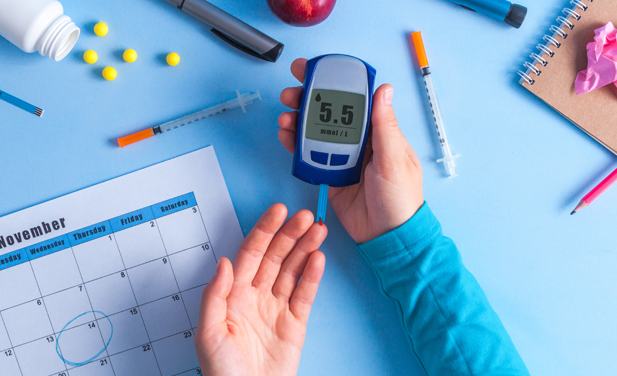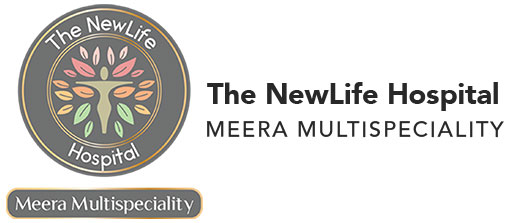
Diabetes disease is diagnosed when the glucose level in your blood which is also referred to as blood sugar increases. Glucose present in the blood is a major source of energy and is obtained from the food we eat. This glucose that is taken from the food enters into the cells to be used as energy through insulin. Insulin is a hormone that is produced by the pancreas.
In the case of diabetes, the body fails to produce sufficient insulin or in some cases any insulin, so glucose remains in the blood and doesn’t reach the necessary cells for energy production.
This remaining glucose that stays without being used is not good for the body and leads to diabetes.
- Types of diabetes
- Type 2 diabetes

Type 2 diabetes, which is referred to as non-insulin-dependent or adult-onset, happens in a person’s body due to the ineffective usage of insulin. Most people are diagnosed with type 2 diabetes and it is very common. The major causes of type 2 diabetes are excess body weight and physical inactivity.
The symptoms that occur in this type have a possibility of being similar to those of Type 1, but they are less visible. This is the reason for delayed diagnosis after the complications and severity have already increased. This type is usually diagnosed in adults but is now frequently occurring in children too.
- Type 1 diabetes
Type 1 Diabetes, which is also referred to as insulin-dependent, childhood-onset, or juvenile, happens due to deficiency in the production of insulin. This type requires daily administration and monitoring of the level of insulin in the body.
Type 1 Diabetes is less in number. The causes and treatment are still not known. Symptoms of Type 1 Diabetes are thirst polydipsia, excessive excretion of urine, weight loss, constant hunger, changes in vision, tiredness, and fatigue. These symptoms might occur suddenly without realization.
- High blood sugar symptoms
- Thirst
- Unexplainable weight loss
- irritation
- blur or unclear vision
- slow healing sores
- extreme and constant hunger
- excessive and frequent urination
- frequent infections like skin infections, gum infection and vaginal infections
- presence of ketones in the urine that take place due to the unavailability of sufficient insulin
- Causes of diabetes
Type 2 diabetes
- Weight- the more fatty tissue you have in your body, the more your cells resist insulin.
- Heredity- if your sibling or parents have type 2 diabetes, then the risk for you to be diagnosed with it is higher.
- Polycystic ovary syndrome- women who have PCOS or Polycystic ovary syndrome, a problem related to irregular menstrual cycle excessive growth of hair, and obesity have a higher risk of diabetes.
- Inactivity- inactivity can be another major cause of type 2 diabetes. Physical activity will help you to control your weight, use up the glucose in the body in the form of energy and this will result in yourself becoming more sensitive towards insulin.
- High blood pressure- a blood pressure over 140/90 mm of mercury is a factor that increases the risk of type 2 diabetes.
- Age- although this type is visible in children too, the risk of type 2 diabetes is more for older people. This may happen due to less physical activity, loss of muscle mass, and weight gain.
Type 2 diabetes
Though the exact causes and reasons for diabetes Type 1 are unknown, a few factors that might depict an increased risk are-
- Heredity- if a parent, sibling, or another family member has Type 1 Diabetes, the risk of you getting diagnosed with it is higher.
- Presence of autoantibodies
Sometimes, a few members of the family who have Type 1 Diabetes are medically tested for any presence of damaging system cells, also known as over antibodies. If they are present, the risk is higher but not everybody who has these in the body compulsorily developed this type.
- Geographical location
As per studies, certain countries including Sweden and Finland have higher rates of the population diagnosed with Type 1 Diabetes.
Diabetes Treatment

You can always work towards prevention by maintaining a regular habit of clean eating and exercise.
Diabetes treatment includes the following options-
- Treatment for retinopathy
- Blood lipids control
- Screening for early symptoms of Diabetes related to Kidney Disease
Medication such as-
- Metformin
- GLP-1 receptor agonists
- SGLT2 inhibitors
Diabetes is a condition that requires careful management of blood sugar levels and once diagnosed, it is important to maintain a healthy lifestyle for effective management. Diabetes complications can be severe, so it is important to manage the condition well.
The new life Hospital Meera multispecialty has been known for its world-class service and treatment in the field of obstetrics, gynaecology, general surgery, laparoscopic, and high-risk delivery. The hospital has been providing its medical facilities for many years and has been trusted by many people. They continue to serve with the same aim and quality of service.
